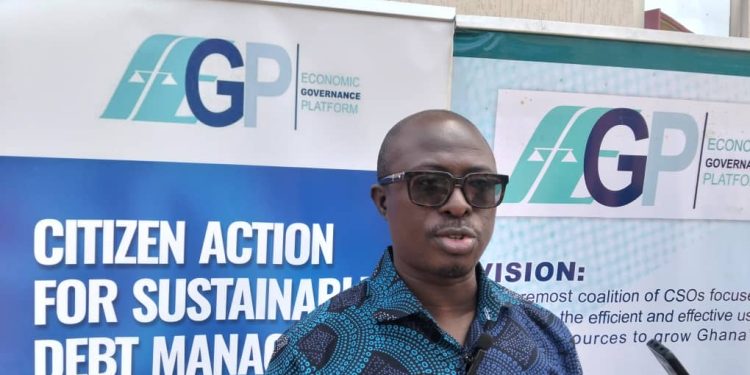The Coordinator of the Economic Governance Platform, Abdul Karim Mohammed, has emphasised the critical need for sustainable debt management as a pathway for Ghana to break its recurring reliance on International Monetary Fund (IMF) bailouts.
Abdul Karim warned that without a firm and long-term approach to managing public debt, the country risks remaining stuck in a cycle of external financial dependence.
Unsustainable debt management, mismanagement of public funds, the indiscriminate sole-sourcing of contracts, and persistent corruption have long plagued Ghana’s economic landscape.
These factors have significantly contributed to the country’s recurring financial distress and the recent bailout from the International Monetary Fund (IMF).
Speaking in an interview with Channel One News on July 30, on the sidelines of an anti-corruption event in Kumasi, Abdul Karim said, “We need to take control of our economic future. If we manage our debts sustainably, we will be in a stronger position to avoid this cyclical dependence on IMF support.”
According to him, Ghana’s economic vulnerability is often tied to poor fiscal discipline and the accumulation of unsustainable debt levels, which ultimately compel the government to seek financial assistance from the IMF during economic downturns.
He urged policymakers to strengthen domestic revenue mobilisation, control public expenditure, and ensure transparent borrowing practices to achieve long-term economic stability.
At a recently concluded forum in Kumasi on August 1, on “Citizens for Sustainable Debt Management in Ghana,” the Ghana Anti-Corruption Coalition (GACC) dissected the underlying causes of Ghana’s growing debt burden and economic instability.
The coalition documented the systemic challenges that have led to the nation’s unsustainable debt trajectory over the years. Their analysis was structured around three critical pillars:
1. The Political Economy of Debt Acquisition and Accumulation – Examining how political decisions and interests influence borrowing patterns.
2. Debt Management – Assessing the effectiveness of institutional and legal frameworks governing public debt.
3. Debt Transparency – Highlighting the need for open communication, public accountability, and improved access to debt-related information.

